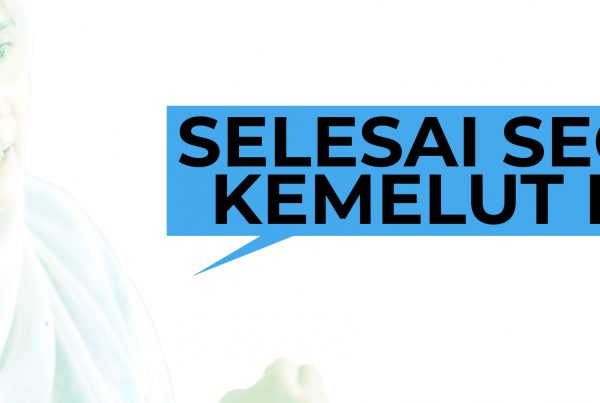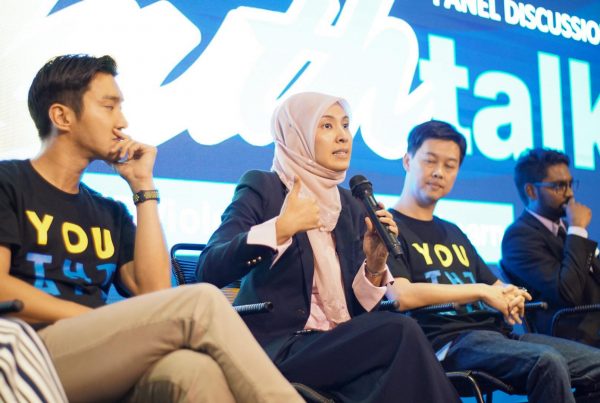WED, 29 SEP 2010 06:00
By Kim Quek

COMMENT Amidst the recent heightening of racial rhetoric, mainly originating from Umno, former prime minister Mahathir Mohamad created a minor sensation when he warned that Malays will lose their power and a Chinese or an Indian may become prime minister, if the opposition Pakatan Rakyat were to come to power.
This statement was immediately rebutted by Nurul Izzah, Lembah Pantai MP, and eldest daughter of opposition leader Anwar Ibrahim.
In a hard-hitting statement on Sept 24, Nurul accused Mahathir of playing the race card to incite racial animosities and to perpetuate the “politics of fear”. The cornerstone of this age-old, race-centric strategy of Umno was Article 153 of the Federal Constitution, which Nurul said Umno has used as a “political instrument of deceit and despair”.
Through mass indoctrination that “degrades, confuses and paralyses the community”, Umno has caused the Malays to be “enslaved intellectually and emotionally”. Nurul said the purpose of all this is to maintain political hegemony so that the few ruling elite can continue to enrich themselves “through corruption, abuse of power and undermining the constitution relentlessly”.
To counter such politics, Nurul offered the “politics of hope and liberation” which would transform the Malay mind from one of misguided fears to one that would “create a confident and liberated community”. She “humbly offers” to debate with Mahathir to “clarify if his ‘fear’ for the Malays is really about loss of power or in reality loss of wealth for the chosen few”.
Not unexpectedly, Mahathir has maintained his “elegant silence” to her offer.
Malaysia or Malaysaja?
Nurul also suggested an “honest, constructive dialogue” with Ibrahim Ali, head of the Malay right-wing Pekasa, which is under the patronage of Mahathir. Nurul’s offer was contained in her article dated Aug 31, titled “The ultimate Malaysian debate: Malaysia or Malaysaja?” (Malaysia or Malays Only?) which was written to counter Perkasa’s seemingly endless championing of “Malay rights” which had escalated racial tension and raised political temperature by many notches.
Ibrahim and Mahathir seem hell-bent on stopping Prime Minister Najib Tun Razak from implementing his New Economic Model, which is supposed to liberalise the economy and free it from the clutches of the economically stifling, much corrupted and skewed New Economic Policy that heavily plays on “Malay rights”.
Nurul’s article is in fact an important document that probes deep into the current Malay dilemma faced by so many Malays, and by extension, the entire country.
In her article, she explores, analyses, as well as answers some of these crucial questions:
- What exactly are “Malay rights”? What is the constitutional basis of these rights? What exactly is stated in the famous Article 153 upon which the clamour for all kinds of racial privileges seems to have been built? What sort of racial preferences are included and what are excluded in Article 153?
- What is the nature of Malay discontent? What are they unhappy about?
- What are the true causes of failure to uplift the Malay standard of living despite heavy dosage of the New Economic Policy?
- What are the real solutions to overcome these predicaments?
- What are the serious consequences to the country if racial bigotry were to triumph over rational solution and “ketuanan Melayu” (Malay supremacy) advocates win the next general election?
Nurul proposes, in her article, to have an “honest, constructive engagement or dialogue” with Perkasa to reach a better understanding of key issues and to jointly look for real solutions.
Nurul’s article is outstanding in that it had accurately dissected Article 153, distinguished facts from myths, analysed ambiguous notions, pin-pointed real causes and solutions, and above all, earnestly and sincerely sought to work out common ground for the benefit of all.
Wanton police acts defamed the nation
But alas, what did she get in return for such gallant effort? Instead of being heaped with accolades and positively reciprocated, she was summoned to a police station where she was subjected to investigation for alleged breach of the Sedition Act based upon a police report lodged by Perkasa accusing Nurul of “questioning” the Federal Constitution in her article!
What a big joke! The one who should be hauled up for questioning should be the complainant, Perkasa representative Zaira Jaafar, for having made an unfounded accusation. Zaira should have been punished or at least warned of the serious consequences of making a false police report and falsely defaming others.
Of late, there has been an alarming increase in the number of cases where police wantonly abused their power to harass opposition members by subjecting them to investigation on frivolous grounds, confiscating their books illegally, and even arresting them arbitrarily.
A most recent case is that of cartoonist Zunar, who was arrested and shuffled around from one police station to another for not less than six times, while all the time the police were unable to make up their mind what law to use to charge him.
By displaying such disgusting political partisanship and lawlessness, the police have defiled the image of the country and further lowered our grade (which has already reached rock bottom) as an investment destination. And needless to say, such fragrant trampling of people’s fundamental rights has caused their political masters, the Barisan Nasional, to lose more electoral support than they could ever imagine.
Now, coming to Mahathir and Ibrahim. The hue and cry they have raised over the alleged peril to the Malay race cannot withstand the test of rational scrutiny. They know the truth but are only pretending not to know it. And their refusal to engage in any constructive dialogue with Nurul goes to show they are not prepared to have their masks taken down


